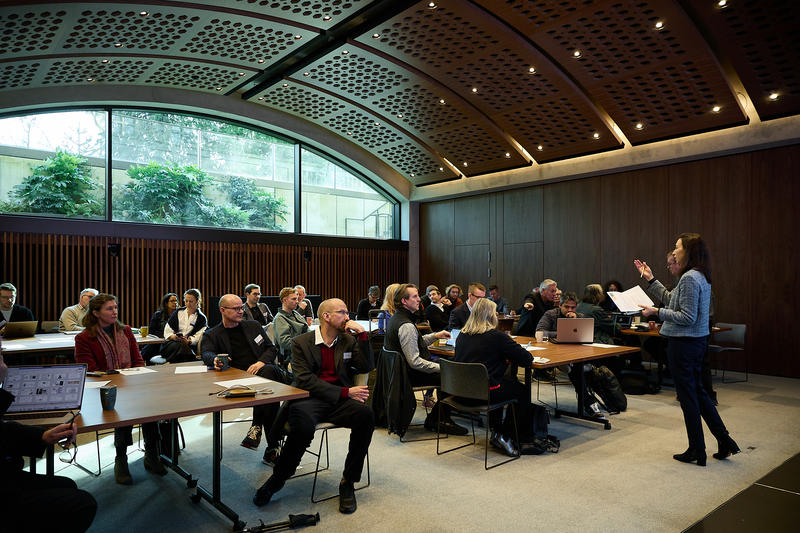
Photo credit: Ian Wallman
AI and Creativity Workshop 18 February 2025, hosted by the Accelerator Fellowship Programme of the Institute for Ethics in AI. Photo credit: Ian Wallman
- A high-level consultation led by Baroness Beeban Kidron OBE and hosted by the Accelerator Fellowship Programme of the Institute for Ethics in AI, University of Oxford, has called for a more balanced approach to AI and copyright regulation in the UK.
- Experts from the creative industries, AI sector, academia, and policy gathered to discuss how AI can support creativity while ensuring fair protections for creators.
- A joint statement warns against government proposals that frame copyright and AI as opposing forces, rather than fostering collaboration.
A group of creators, AI experts, academics, civil society and industry leaders, led by Baroness Beeban Kidron OBE, have launched the Oxford Consultation on Copyright and AI, in response to the government’s consultation on ‘Copyright and Artificial Intelligence’.
The consultation has been formed following the “AI and Creativity Workshop” organised on 18 February by the Accelerator Fellowship Programme of the Institute for Ethics in AI, University of Oxford. Hosted by Dr. Caroline Green, Lead of the Programme and Director of Research at the Institute for Ethics in AI, and Baroness Kidron, the workshop aimed to foster collaboration between the creative industries and AI communities, which led to a unified statement and action plan.
Statement from the Oxford Consultation on Copyright and AI:
“New technology presents exciting creative opportunities, but we are at a pivotal moment in shaping the regulatory landscape for AI. If AI is to protect creative heritage and truly benefit creativity and humanity, its development must consider the collective needs of creators, technologists, policymakers, researchers, and the wider public. Creators possess both moral and commercial rights over their work. Some AI companies are already adopting responsible approaches to copyright, prioritising transparency and legal compliance. However, the UK government’s consultation on ‘Copyright and Artificial Intelligence’ has been framed as a competition between the creative industries and AI companies, rather than fostering an inclusive, co-productive process. The current proposals risk destabilising the economic foundations of the creative sector while failing to recognise AI companies that are taking a responsible approach to copyright and transparency.”
Key Consensus Points:
- The growing tendency of UK government actions to separate AI and the creative industries undermines potential collaboration. AI and creative sectors must engage in a comprehensive and balanced dialogue.
- The UK’s creative industries are well-positioned to play a significant role in the generative AI revolution. However, participation must be grounded in a strong intellectual property (IP) framework, supported by imaginative and balanced consultation processes.
- Certain AI companies have demonstrated responsibility by adhering to copyright laws, acting transparently, and paying for licenses. Expanding copyright exemptions would disadvantage these responsible companies while favouring large technology corporations.
The Oxford Consultation on Copyright and AI marks a significant step towards ensuring a fair, sustainable future for both AI and creative industries. Participants call on the UK government to adopt a more inclusive and balanced approach to copyright and AI regulation, fostering an ecosystem where creativity and technological innovation can thrive together.
Baroness Kidron said:
“The current government proposals threaten the economic basis for the creative sector and do not value enough the wide range of AI businesses and innovators in the UK who are taking a responsible approach rather than privileging big tech companies.”
Dr Caroline Green, Director of Research at the Institute for Ethics in AI, said:
“AI offers many opportunities for creators and human creativity. But, without regulation and policy that recognises creators’ moral and commercial rights over their work, it threatens their very livelihoods. The Oxford Consultation on Copyright and AI will be inclusive, thoughtful, forward looking and keep all stakeholders in mind. It will be a consultation that takes account of all those with an interest in AI, in creative industries, and who are interested in a positive outcome for both.”